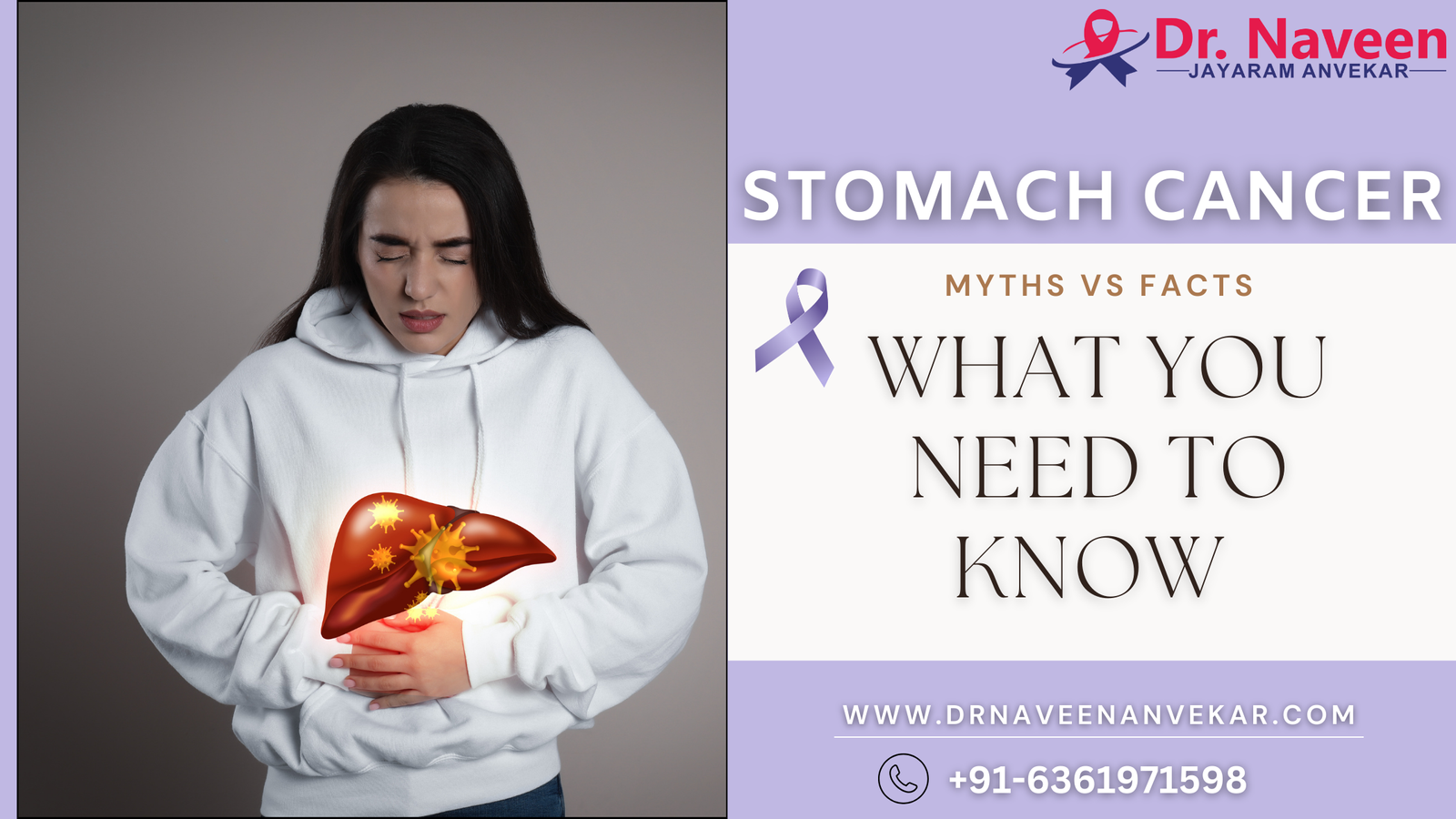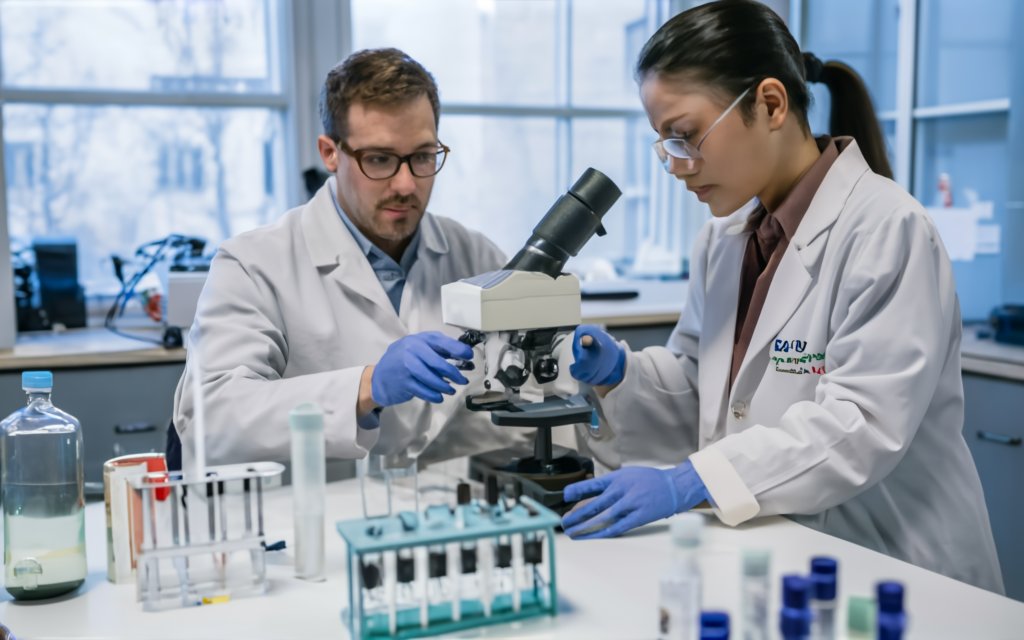
Stomach Cancer Myths vs. Facts: What You Need to Know
Stomach Cancer Myths vs. Facts: What You Need to Know
Introduction
Stomach cancer is one of the most misunderstood types of cancer. Many myths surround its causes, symptoms, and treatment. Misinformation can lead to unnecessary fear and delays in diagnosis.
In this article, we’ll break down common myths and replace them with facts, Best Cancer Treatment in Mysore . It does not directly cause cancer. helping you make informed decisions about your health.
Myth #1: Stomach Cancer is Always Genetic
Fact: While genetics can play a role, lifestyle factors and infections also contribute.
Many people assume that if no one in their family has had stomach cancer, they are safe. However, family history is just one factor.
Other major risk factors include:
- Helicobacter pylori (H. pylori) infection – a common bacterial infection linked to stomach cancer.
- Unhealthy diet – processed meats, high salt intake, and low fruit/vegetable consumption increase risk.
- Smoking and alcohol use – both have been associated with an increased risk of stomach cancer.
Even if you have no family history, regular screenings and healthy lifestyle choices can help reduce the risk.
Myth #2: Spicy Food Causes Stomach Cancer
Fact: There is no direct link between spicy food and stomach cancer.
Many people believe eating spicy food can lead to stomach cancer. While spicy food can irritate the stomach lining in some individuals, Best Cancer Treatment in Mysore it does not directly cause cancer.
The real dietary risks include:
- High salt intake – Found in processed and smoked foods, excessive salt can damage the stomach lining.
- Preserved meats – Nitrates and nitrites in processed meats can convert into cancer-causing compounds.
- Poor diet – A lack of fibre, antioxidants, and vitamins weakens the body’s defence against cancer.
Eating a balanced diet rich in fresh vegetables, fruits, and lean proteins can help maintain stomach health.
Myth #3: Only Older Adults Get Stomach Cancer
Fact: While more common in older adults, younger individuals can also develop it.
Stomach cancer is often diagnosed in people over 50, but younger adults are not immune.
Certain factors can increase risk regardless of age:
- H. pylori infection – Can lead to chronic inflammation and eventually cancer.
- Genetic mutations – Certain inherited gene mutations increase risk in younger people.
- Obesity – Excess body weight has been linked to various cancers, including stomach cancer.
Regular check-ups and being aware of symptoms can help with early detection, even for younger individuals.
Myth #4: Stomach Cancer is Always Fatal
Fact: Early detection improves survival rates significantly.
While stomach cancer is serious, it is not always fatal. Survival rates depend on the stage at diagnosis.
- Early-stage stomach cancer – When detected early, treatment success rates are much higher.
- Advancements in treatment – Surgery, chemotherapy, and targeted therapies have improved survival chances.
- Regular screening – Those with risk factors should undergo periodic screenings for early detection.
Being informed and seeking medical attention for persistent symptoms can lead to better outcomes.
Myth #5: There are No Early Symptoms of Stomach Cancer
Fact: Early signs exist but are often overlooked.
Many believe that stomach cancer has no symptoms until it's too late. However, early symptoms do exist:
- Persistent indigestion or heartburn
- Loss of appetite or feeling full quickly
- Mild stomach pain or discomfort
- Unexplained weight loss
While these symptoms may also indicate less serious conditions, it’s essential to consult a doctor if they persist.
FAQs
1. What are the main causes of stomach cancer?
The main causes include H. pylori infection, poor diet, smoking, excessive alcohol consumption, and genetic factors.
2. Can stomach cancer be prevented?
While not entirely preventable, reducing risk factors like a healthy diet, quitting smoking, and managing H. pylori infection can help.
3. How is stomach cancer diagnosed?
Diagnosis usually involves endoscopy, biopsy, imaging tests (CT scans), and blood tests.
4. Are stomach ulcers linked to cancer?
Most ulcers are not cancerous, but H. pylori-related ulcers can increase the risk over time.
5. What is the survival rate for stomach cancer?
Survival rates vary based on the stage at diagnosis. Early detection significantly improves prognosis.
Conclusion
Misinformation about stomach cancer can lead to unnecessary fear and delayed diagnosis. Understanding the facts is crucial for prevention and early detection.
By maintaining a healthy lifestyle, staying informed, and seeking medical attention for unusual symptoms, the Best Cancer Treatment in Mysore. it does not directly cause cancer. you can take proactive steps toward stomach health.
If you or a loved one have concerns about stomach cancer, consult a healthcare professional for guidance.

.png)
.png)
.png)
.png)
.png)

.png)
.png)
.png)


.png)
.png)
.png)
.png)

.jpg)
